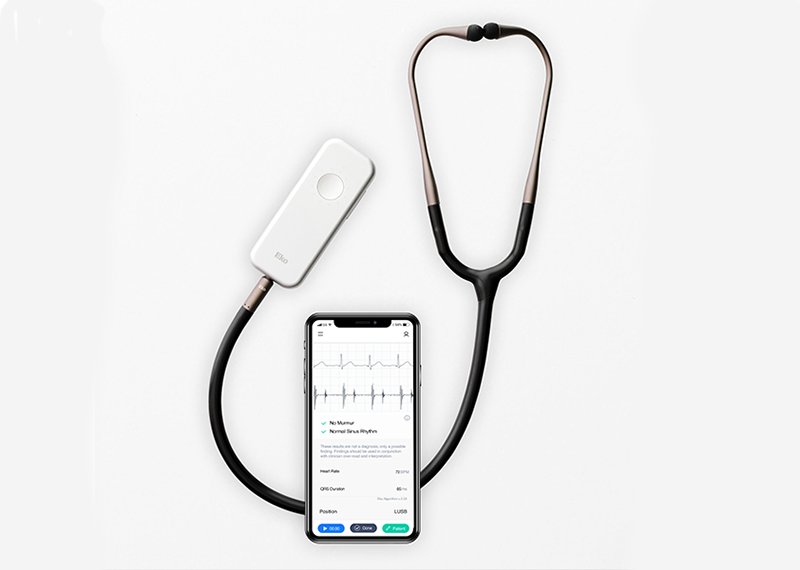Eko, a maker of expensive digital stethoscopes, has received the first FDA clearance for its devices to use AI algorithms to automatically detect atrial fibrillation (AFib) and heart murmurs.
Read more Bristol-Myers Squibb-Pfizer Alliance and Fitbit Collaborate on AFib Diagnosis
Atrial Fibrillation is a quivering or irregular heartbeat, sometimes caused by a heart valve problem, that can lead to the formation of blood clots in the heart. These clots can travel to the brain and trigger a stroke or heart failure.
Using the algorithms, in combination with Eko’s digital stethoscopes, primary care physicians will be able to identify potential cases of AFib, as well as vulvular and structural heart diseases, with an accuracy similar to seasoned cardiologists, reports Business Wire.
“Our vision since day one has been to build seamless technology that helps providers more accurately detect heart disease, the leading killer in the world, by putting the ears of a cardiologist in any clinician’s stethoscope,” says Connor Landgraf, Eko’s Co-Founder and CEO. “Eko’s new ability to alert a provider to the presence of a heart murmur or atrial fibrillation during the standard physical exam brings that vision to life.”
Eko’s AI is able to identify heart murmurs, a leading symptom of valvular heart disease, with 87% sensitivity and 87% specificity. In comparison, a recent study revealed that using traditional stethoscopes, primary care physicians had a sensitivity of 43% and a specificity of 69% for detecting significant valvular heart disease, which affects over 5 million Americans.

The AI is able to detect AFib with 99% sensitivity and 97% specificity when analyzing the 1-lead ECG tracing from the Eko DUO stethoscope. The integration of ECG into the stethoscope enables providers to quickly screen patients for the serious arrhythmia during a standard physical exam.
The Algorithm also reports heart rate and QRS duration and identifies tachycardia and bradycardia, abnormally fast and slow heart rates, which can be indicative of heart disease or other health conditions such as thyroid disease.
Eko’s AI is a cloud-based software application that analyzes ECG and heart sound/phonocardiogram (PCG) data. The software uses several methods to interpret the acquired signals, including signal processing and convolutional neural networks.












